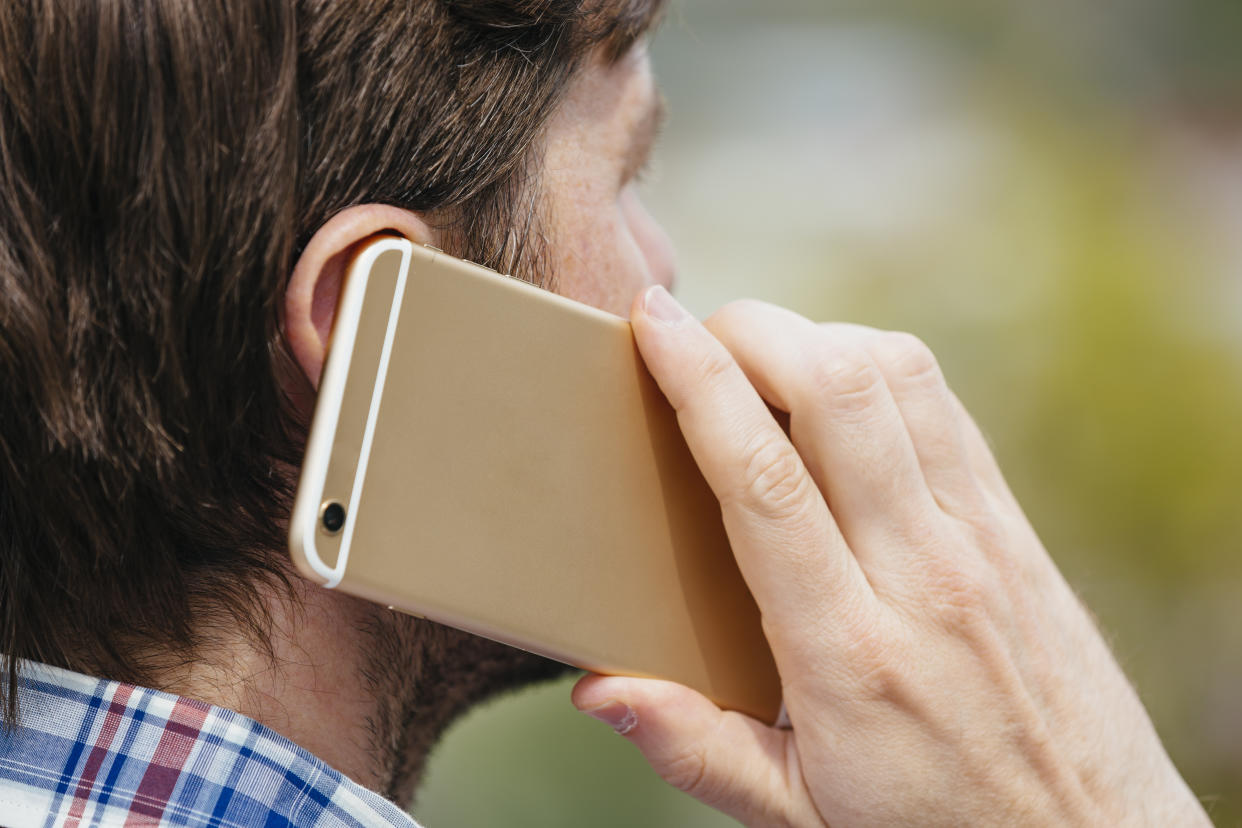Mobile phone radiation could ‘trigger thyroid cancer in those genetically at-risk’

The radiation given off by mobile phones may trigger thyroid cancer in people genetically at-risk of the disease, research suggests.
The supposed tumour risk of mobiles is a contentious topic.
READ MORE: Mum’s persistent ulcer turned out to be a form of tongue cancer
Critics point the finger at the “radiofrequency radiation” cell phones emit, which can get absorbed by “parts of the body nearest the antenna”, according to the National Cancer Institute.
Unlike known cancer-causing radiation - like that given out by X-rays - the waves emitted from mobiles is “non-ionizing”, defined by its wavelength and frequency.
“Many studies” have failed to provide “consistent evidence that non-ionizing radiation increases cancer risk in humans”.
Nevertheless, scientists from Yale found there may be a link.
The team analysed more than 900 people living in Connecticut, of which 440 had thyroid cancer.
An analysis of 176 genes linked 10 mutations to the disease, but only in “cell phone users” who were genetically at-risk anyway.
READ MORE: Mum underwent chemotherapy and a double mastectomy after doctors misdiagnosed her with breast cancer
“Our study provides evidence that genetic susceptibility influences the relationship between cell phone use and thyroid cancer,” study author Dr Yawei Zhang said.
“More studies are needed to identify populations who are susceptible to radiofrequency radiation (RFR) and understand exposure to RFR by different using patterns of cell phones.”
Writing in the journal Environmental Research, the scientists note information on mobile use was collected between 2010 and 2011, when smartphones were starting to become mainstream.
“Earlier generation cell phones” may therefore have been to blame, they added.
Phone use has also changed over time, shifting from calls to largely texting, which may impact any cancer risk.
Around 52,890 people are expected to be diagnosed with thyroid cancer in the US this year, according to the American Cancer Society.
In the UK, about 3,500 new cases arise annually, Cancer Research UK statistics show.

Do mobile phones cause cancer?
Non-ionizing radiation is “low frequency and therefore low energy”, according to the National Cancer Institute.
With the body absorbing energy from devices that emit radiofrequency electromagnetic radiation, high frequency ionizing waves have been linked to cancer.
To learn more about the risks of mobiles, the Interphone study looked at a range of papers analysing phone use across 13 countries.
Results - presented by the National Cancer Institute - were muddled, with one study finding the distribution of tumours within the brain could be linked to “self-reported location of the phone”.
Further analysis suggested an increased risk of the benign brain tumour acoustic neuroma in those who used a mobile for 10 years or more.
It then also found no relationship between brain tumour location and the area of the organ most exposed to radiofrequency radiation.
The Danish Study, led by the Institute of Cancer Epidemiology in Copenhagen, linked billing information from more than 358,000 mobile phone subscribers with brain tumour incidence.
The scientists found no association between phone use and the brain tumours glioma, meningioma or acoustic neuroma - even among those who had been subscribers for 13 years or more.
READ MORE: Doing less than 25 minutes of exercise a day could help ward off cancer, says study
The University of Oxford’s “The Million Women Study”, which is made up of a quarter of females born in the UK between 1935 and 1950, similarly found no such link.
Based on the evidence available, The International Agency for Research on Cancer (IARC) classifies “radiofrequency fields” as “possibly carcinogenic to humans”.
This is defined is “limited evidence showing radiofrequency carcinogenicity in humans and less than sufficient evidence of carcinogenicity in experimental animals”.
To give context, the IARC also classifies coffee as “possibly carcinogenic”.
According to the Centers for Disease Control and Prevention, there is “no scientific evidence that provides a definitive answer”.
Cancer Research UK agrees, adding there “aren't any good explanations for how mobile phones could cause cancer”.
Non-ionising radiation reportedly does not have “enough energy to damage DNA and cannot directly cause cancer”.
The Food and Drug Administration claims studies have so far indicated no link between mobile use and cancer, adding “attempts to replicate and confirm the few studies that did show a connection have failed”.
The American Cancer Society previously said it is critical studies like Yale’s be interpreted with “great care”.
Those concerned could reduce their risk by “limiting cell phone use or using a headset”, it adds.


